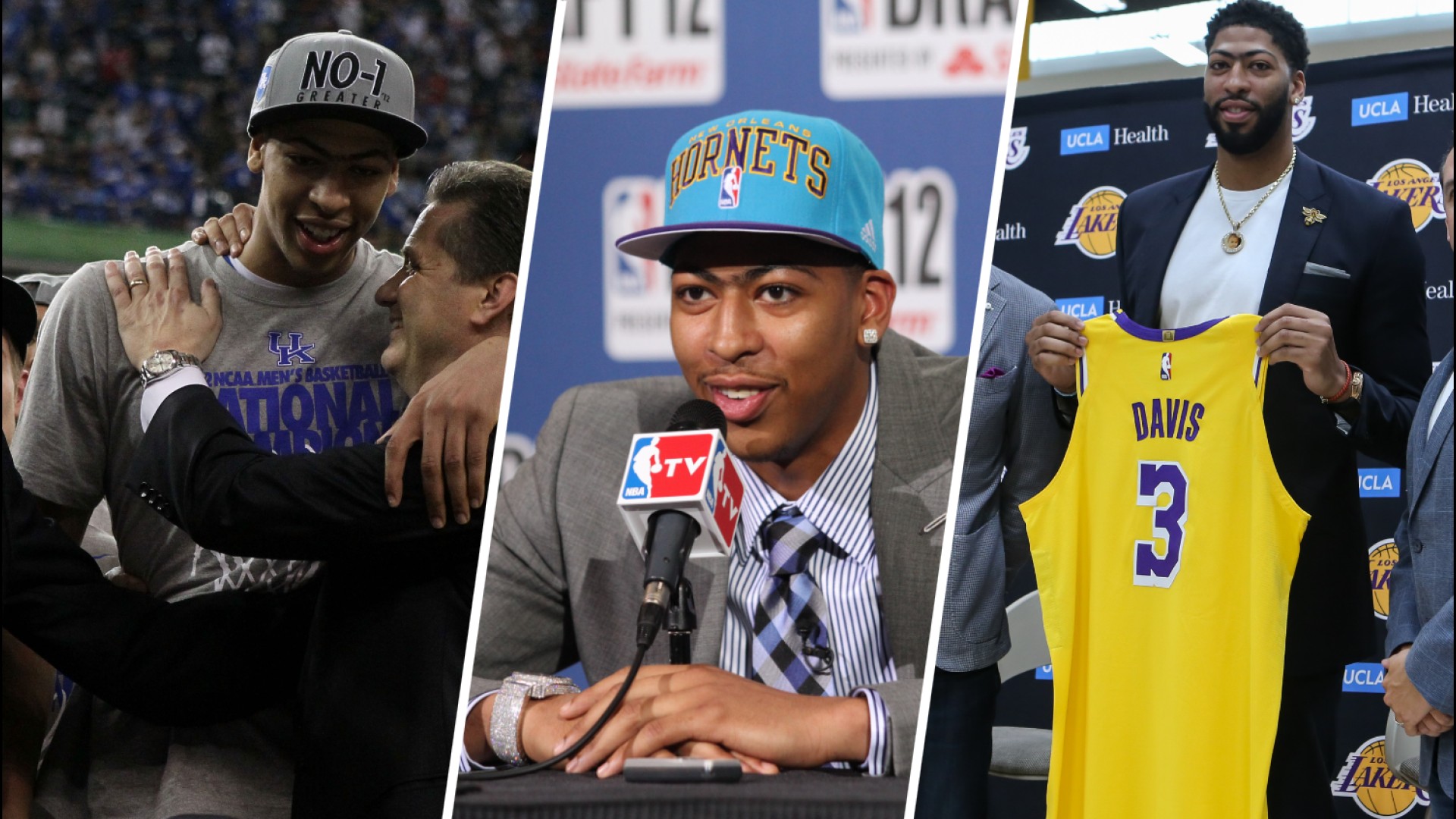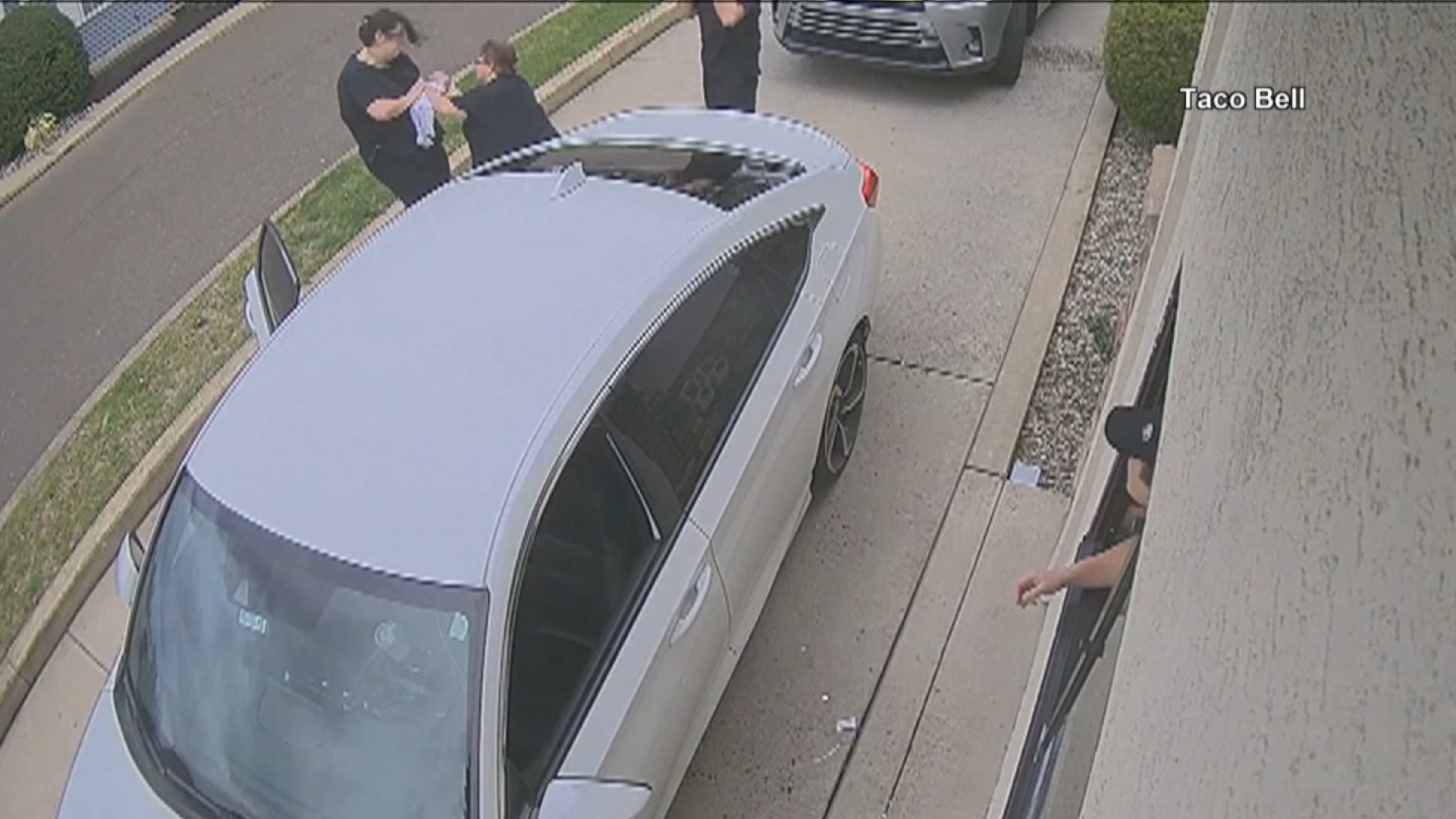
Two years and two days after signing Ilya Bryzgalov to a nine-year, $51 million deal, the Flyers on Tuesday admitted they made a mistake.
Bryzgalov -- defiant, moody and accusatory right up to the end -- naturally blamed the media.
There's little arguing that getting rid of him wasn't the right move -- it was -- but here are five spectacularly awful aspects about his tenure you shouldn't ignore, and they're all about the front office.
Stay in the game with the latest updates on your beloved Philadelphia sports teams! Sign up here for our All Access Daily newsletter.
1. Amnestying Bryzgalov should not have been possible
When the Flyers offered Bryzgalov his contract in 2011, compliance buyouts didn't exist.
The only reason the Flyers were able to get rid of Bryzgalov after two seasons: the NHL lockout. To help teams find their way back under a lower cap they didn't plan for, the league granted each franchise two compliance buyouts.
If certain NHL clubs weren't in financial distress, and the league was economically viable enough that it didn't feel need to lower its salary cap, this would not have been an option.
The Flyers would have been stuck, unless they found a trade partner -- ask the Vancouver Canucks how that's going with a guy who has been both better and substantially less toxic than Bryzgalov -- or they were willing to have the buyout count against their cap for the next 14 years.
News
2. The Flyers traded away a Vezina winner
Was it reasonable to think Sergei Bobrovsky was going to win the Vezina this year? No. But what was wrong with him in the first place?
As a 22-year-old rookie, Bobrovsky posted a 2.59 GAA and .915 save percentage in 54 games. Those numbers aren't bad at all, especially when you consider how they inflated when he ran out of gas down the stretch. His performance over the final month of the 2011 season, when he had clearly hit a wall, led to a Bobrovsky-Brian Boucher-Michael Leighton goalie carousel orchestrated by coach Peter Laviolette. There is little arguing Laviolette -- for all the good he's done as coach and for as likable as he is in the position -- didn't mismanage the situation. Badly.
The Flyers barely survived the Sabres, got swept by the eventual Stanley Cup winners, and soon opted to drastically change course when they traded Mike Richards and Jeff Carter and acquired Bryzgalov all on the same day.
Once Bryz was added, Bob languished as a backup and the team decided it was best to trade him to Columbus because he wasn't going to get the playing time he needed behind Bryzgalov. At some point between the end of their 2011 playoff run (on May 6) and the day they signed Bryzgalov (June 23), the team decided an inexpensive 22-year-old rookie with one surprisingly encouraging season under his belt was not their future.
No Flyers goaltender has won the Vezina since Ron Hextall's rookie season in 1986-87. The Blue Jackets did not make the playoffs.
3. Richards and Carter won a Stanley Cup, and they're going to be really good for a long time
In order to sign Bryzgalov, the Flyers traded the faces of their franchise, two guys who were in their prime.
Richards was 26, had been named captain, had been to an All-Star game, had won a Gold Medal with Team Canada, and was heading into the fourth year of a 12-year $69 million deal. He was and still is one of the best two-way forwards in the NHL. At various points, he got salty with the media because it was alleged he and his teammates partied too much, which didn't prevent this from happening nor the team from coming within two wins -- and, go figure, a competent goaltender -- of the Stanley Cup.
As for Carter, the ink had barely dried on his 11-year, $58 million contract. He was one season into it before was dealt to Columbus. He had already scored 46 goals in a season and followed it up with 33 goals and 36 goals over the next two years. Those numbers did not immediately translate into success in the playoffs, during which he was often hurt.
Three years after making Richards the captain and one year after giving Carter an 11-year deal, the Flyers shipped them both out of town in order to sign Bryzgalov.
Two years later, Bryzgalov is no longer a Flyer, Richards and Carter have been reunited in L.A., they've already won a Cup, they went back to the Western Conference Finals this year, Carter just scored 26 goals in 48 regular season games and has found the back of the net 14 times in the last two postseasons.
The Flyers lavished huge contracts on two superstars and quickly traded those guys for a headcase they had to buy out with the aid of magic wand that didn't exist when they originally made the deals. If that is not the plainest example of an organization that's lost its way, then what is?
Whatever excuses you may or may not have heard to justify their exit separate from the now-failed search to find a goaltender do not hold water. Here are three of them just to prove a point:
- Richards and Carter aren't "the guys" in L.A. like they were in Philly -- Maybe not? But they play together on the same line in crunch time, with Richie even moving back to defense, because A) he needs to be on the ice B) he's versatile enough to do it and C) some combination of Dustin Brown, Anze Kopitar and Drew Doughty are out there, too. And somehow GM Dean Lombardi has made those five players and goaltender Jonathan Quick fit under his salary cap. So not only did he take on the large contracts to which the Flyers signed Richards and Carter, but he was able to have enough other talent on the roster to win the Cup. Maybe they're not "the guys," but Carter just led the team in goal scoring, and L.A. is paying both them like they are. Somebody thinks they're worth having around, and with good reason.
- The Flyers got back greater value -- This is unknowable at the moment. Brayden Schenn and Sean Couturier certainly look promising and Jake Voracek and Wayne Simmonds are already very valuable commodities, but the Flyers traded a young core that had already been to a Stanley Cup Final for an even younger core. They are still without a Stanley Cup and one does not appear imminent even with all their young, talented forwards, which they always seem to have anyway.
- Richards and Carter were too involved with off-ice antics -- It's doubtful Dry Island exists in L.A., especially if we're judging by this picture, via Puck Daddy:
4. They Flyers still don't have a No. 1 goalie
There are reasons to be optimistic about Steve Mason. It was a small sample size, but in seven games, he posted a 1.90 GAA and .944 save percentage behind a Flyers defense commonly considered poor, the same defense Bryzgalov (2.79, .900) played behind.
At 6-foot-4 and 220 pounds, he's big. Big is good. And this is the same guy who once won the Calder Trophy before regressing on a bad team. There are guys who just need a change of scenery sometimes. The Flyers have traded away a few of them.
But does the front office think Mason is the answer? No.
If they did, they wouldn't have tried to trade for Jonathan Bernier, who is young and potentially promising, but also unproven. Had that trade worked out, the Flyers would have two goalies and it wouldn't have been immediately clear who was backing up whom, unless the organization gave Bernier a large, new contract -- which alone would not have prevented another potential goalie controversy.
As it is, the Flyers have one goalie. And as was just established, they aren't so sold on him as to think they don't need to trade for or sign someone else, who will likely compete with Mason for the starting gig.
As for the future, if the next words out of your mouth are "Anthony Stolarz" ... There was once a time this team signed John Vanbiesbrouck over Mike Richter and Curtis Joseph because Brian Boucher and Jean Marc Pelletier were waiting in the wings. Pelletier didn't pan out, and Boucher was eventually traded for Robert Esche less than two years after his stellar rookie season. Prospects are prospects.
That's all aside from the fact that the Flyers' track record with young talent -- be they goaltenders, forwards or defensemen -- leaves little room for confidence. How many times have you had a conversation about the team giving up on someone "too quickly?"
5. They do not appear to have learned from their variety of mistakes
This has less to do with Bryzgalov and the goaltending situation, in specific, and more to do with the previously mentioned lack of direction and foresight, in general.
Last summer, the Flyers decided $5.5 million over each of the next six seasons was too much to pay for then-27-year-old Matt Carle. Even those of us who thought Carle was unfairly and overly criticized throughout his Flyers tenure conceded that amount of money was too high and based on how the free-agent market had shaped up to that point.
The flip-side is that puck-carrying defensemen are always expensive and that the Flyers, by letting Carle walk, no longer had one, aside from the aging Kimmo Timonen and the inexperienced Erik Gustafsson.
After missing the playoffs in a lockout-shortened year thanks to a variety issues -- including poor goaltending exacerbated by a shoddy and oft-injured defensive corps -- the Flyers decided to pay Mark Streit $5.25 million over the next four years.
Streit, 35, is seven years older than Carle. He turns the puck over at almost the exact same rate, is marginally better offensively.
Streit, by the way, is now making the same amount of money per season as Jeff Carter.
Put everything together and the Flyers are right back to where they started, with a promising group of young forwards, a question mark in goal, and more regrets about leaders they lost too soon to injury (Lindros, Primeau, Pronger).
I am not saying anyone should be fired for all of this. I'm saying general managers have been fired for less than this.


